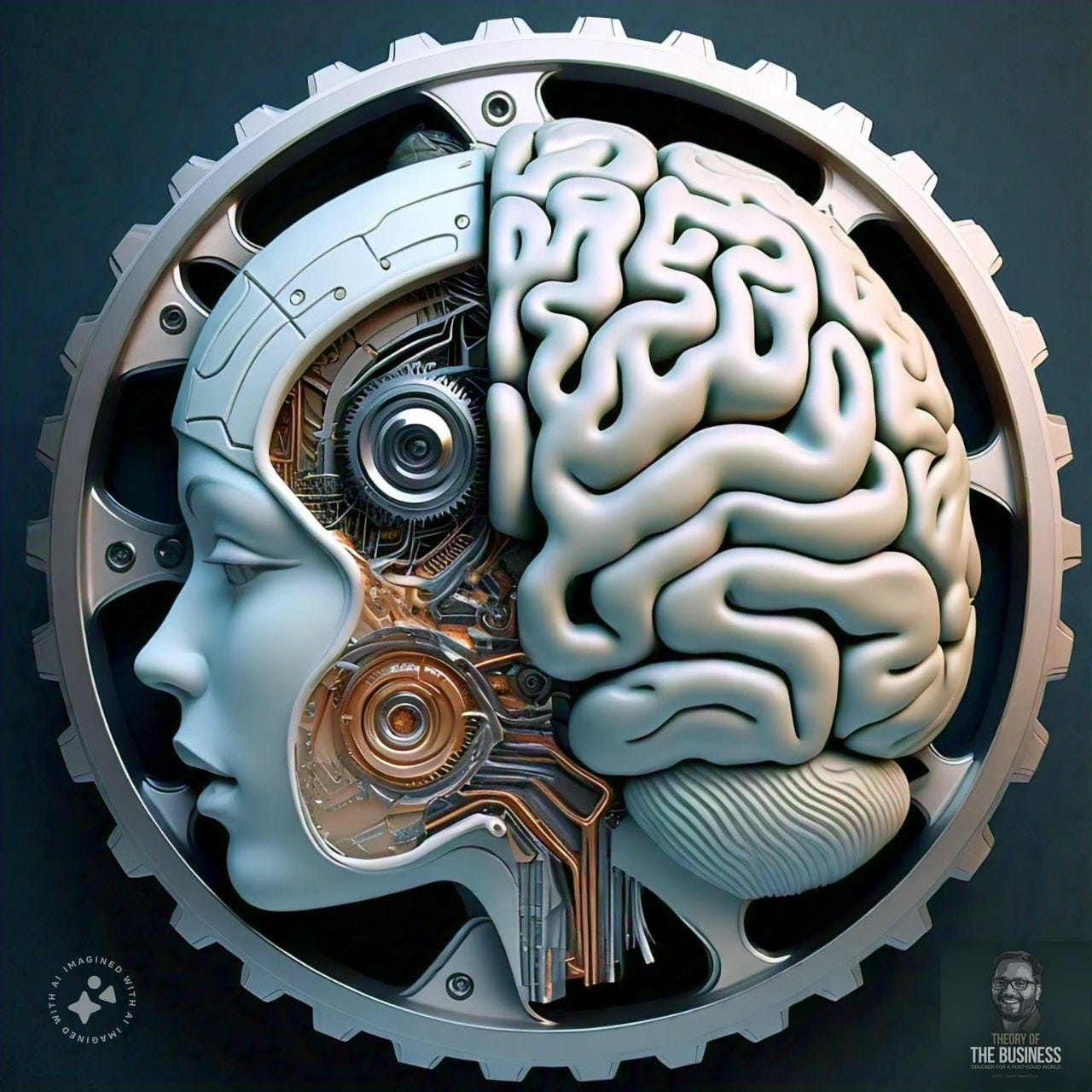AI-Driven Capability Building: Nurturing the Knowledge Workers of Tomorrow
Peter Drucker, the renowned management consultant, once said, "The most valuable asset of a 21st-century institution, whether business or non-business, will be its knowledge workers and their productivity." In the realm of innovation, this statement rings truer than ever. Building the capabilities of these knowledge workers is paramount, and AI is emerging as a transformative force in this endeavour.
Personalised Learning & Development: A Drucker-Inspired Approach
Drucker championed the idea of "management by objectives" (MBO), emphasising the importance of setting clear goals and providing individuals with the autonomy and resources to achieve them. AI-powered personalised learning aligns seamlessly with this philosophy.
AI-Powered Assessments: AI can dynamically analyze individual strengths, weaknesses, and learning styles, enabling the creation of customised learning paths that align with specific objectives and maximise engagement.
Adaptive Content Delivery: AI's ability to tailor content delivery and pace fosters self-directed learning, a key tenet of Drucker's management philosophy.
Just-in-Time Learning: By identifying knowledge gaps in real-time, AI empowers individuals to take ownership of their learning and development, promoting the autonomy Drucker advocated for.
Mentoring & Coaching at Scale: AI-powered virtual mentors can provide personalised guidance and feedback, offering a scalable solution to the mentorship Drucker deemed crucial for knowledge worker development.
The Drucker Connection: Effectiveness, not just Efficiency
Drucker always emphasised effectiveness over mere efficiency. AI-driven capability building embodies this principle by focusing on outcomes. It's not about completing courses or accumulating hours of training; it's about acquiring the specific skills and knowledge needed to innovate and create value.
AI: Empowering Knowledge Workers to Drive Innovation
AI isn't just about automating tasks; it's about augmenting human capabilities and empowering knowledge workers to reach their full potential. By providing personalised learning experiences, AI enables individuals to develop the skills and mindset needed to thrive in an ever-changing landscape. This, in turn, strengthens the organisation's overall innovation capabilities, fostering a culture of continuous learning and growth - a vision Drucker would undoubtedly applaud.
Benefits:
Accelerated Skill Development: By focusing on individual needs and providing tailored support, AI can significantly speed up the acquisition of innovation capabilities.
Increased Engagement & Retention: Personalised learning experiences are inherently more engaging and relevant, leading to improved knowledge retention and application.
Cost-Effectiveness: AI-powered solutions can deliver personalised learning at scale, making it a cost-effective way to upskill a large workforce.
Data-Driven Insights: AI can track learner progress and provide valuable insights into skill gaps and training effectiveness, enabling continuous improvement of L&D programs.
Real-World Examples:
Companies like Degreed and Cornerstone are leveraging AI to provide personalised learning experiences.
Startups like Cerego and Riid are using AI to make learning platforms that fit different learning styles and needs.
The Bottom Line:
As Drucker predicted, knowledge workers are the driving force of innovation in the 21st century. By leveraging AI to personalise their learning and development, organisations can unleash their full potential, moving beyond "Innovation Theatre" and into a future where innovation is not just a buzzword, but a reality.


